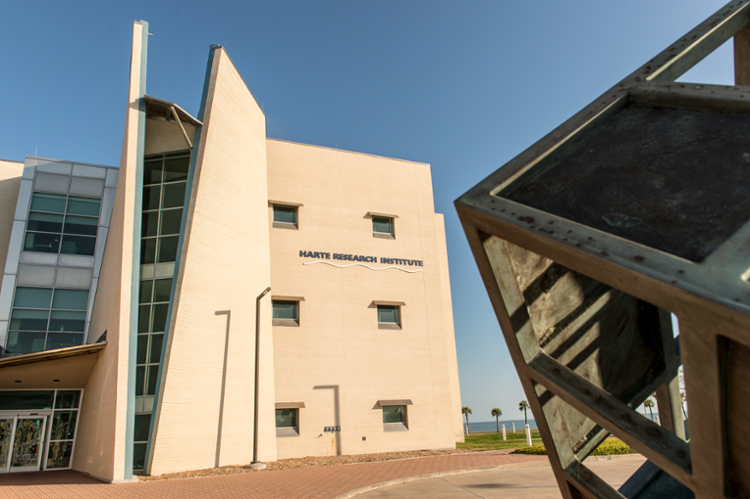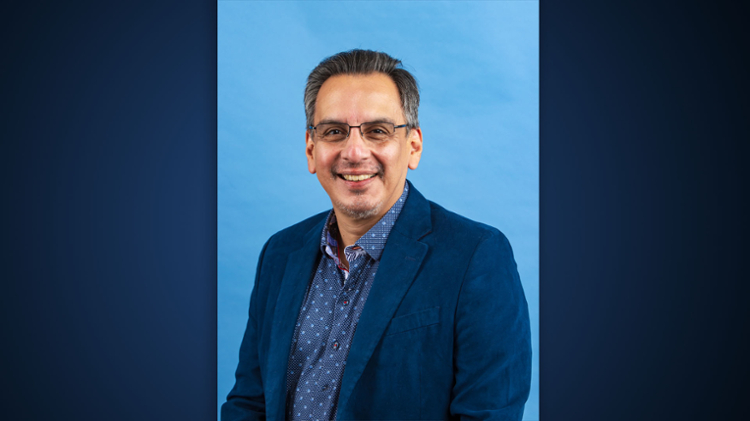TAMU-CC Doctoral Student and Alumna Both Selected for Elite National Academy of Sciences Fellowships
CORPUS CHRISTI, Texas – Creating real-world change through research and policy — that’s the goal for Jacob Oster ’24 and Zoe Ruben ’20, ’23, as they each begin a new adventure as a National Academy of Sciences (NAS) Gulf Research Program Science Policy Fellow. The highly prestigious and competitive award opportunity selects only 10 fellows per year for a year-long mentorship position on the staff of federal, state, local, or non-governmental natural resource, oil and gas, environmental, or public health agency within the Gulf of Mexico region. Fellows spend the year delving into activities like policy development, evaluation, restoration planning, grants management, and stakeholder outreach as they learn what it takes to make scientific information not just useful but useable.
Oster, a TAMU-CC marine biology doctoral student, was placed with the Water Institute in New Orleans where he is being mentored by Dr. Jessica Henkel, Deputy Director to the Chief Scientist and former Science Policy Fellow. Ruben, who recently earned her master’s degree in marine biology from TAMU-CC, was placed with the Florida Department of Environmental Protection where she is being mentored by Alex Reed, Director of the Office of Resilience and Coastal Protection, and Cheryl Clark, Coastal Projects Manager.
“While I’ve called the Island University my home since 2016, I am excited to adjust and thrive in a new environment, pushing the boundaries of my knowledge on science policy,” Ruben said. “I want to understand the link between data collection, analysis, and ‘science in action,’ or science turned into positive change.”
During her time as an Islander, Ruben was a research assistant in the Bahr Marine Ecology Lab under the direction of Dr. Keisha Bahr, TAMU-CC Assistant Professor of Marine Biology.
“Dr. Bahr has always encouraged my drive and spirit. She has curated a welcoming and inclusive lab environment and sets aside time to tailor her mentoring practices to each of her students individually to better support their success,” Ruben said. “Her mentorship has guided me to this opportunity and I’m forever grateful for that.”
Bahr said Ruben brought a refreshing energy and passion to the field of marine biology.
“In our first field study together, we explored a beautiful coral reef in Hawaiʻi, and Zoe’s excitement and curiosity were palpable,” Bahr said. “Her eyes lit up as she observed the vibrant marine life and conducted her research with great enthusiasm. Witnessing her genuine passion for marine biology and the natural world encapsulated her spirit and reminded me of why I am so grateful to work with her and other students. This fellowship serves as one more way to propel that curiosity into an invaluable career opportunity.”
Ruben said the fellowship is an additional opportunity to advocate for and represent women in the sciences.
“The next generation of bright female minds deserves to know that it’s possible to be a successful ‘STEMinist,’” Ruben said. “I encourage women just starting their STEM studies to be bold and ask a lot of questions. The answer is always ‘no’ if you don’t ask, so be on the lookout for research opportunities, pitch yourself to professors, and have confidence in your abilities. And once you have established yourself, don’t forget to help the next person in line.”
Oster is a graduate research assistant in the Walther Fish Ecology Lab under the direction of Dr. Benjamin Walther, TAMU-CC Associate Professor of Life Sciences.
“Dr. Walther has done a fantastic job of preparing me for my proposal defense and comprehensive exams,” Oster said. “He’s encouraged me to attend quite a few conferences that have helped me develop professional connections and share our research. He was also the one who told me about this fellowship and encouraged me to apply for it. I owe him a lot.”
Walther said Oster’s research has the potential to impact those far beyond the Island University.
“Jacob is an exceedingly bright and promising scientist who is clearly passionate about making the world a better place with his research,” Walther said. “Through this fellowship, it’s my hope he will take away a new appreciation for the impact that his research can have on the real world around us. Often it can be hard to break out of our campus setting and truly understand the importance of our work to policymakers and the public — this is his chance to eliminate that barrier.”
Oster said he hopes this fellowship will serve as a gateway for communicating his research into real change.
“Learning to communicate your work to a non-scientific audience in a way others can understand and use your science is so important,” Oster said. “Knowing what sort of information is needed by policymakers so they can make informed decisions is vital to making and sustaining real change.”
As part of their fellowship, both Oster and Ruben will receive an annual stipend of $58,000 courtesy of the NAS along with an additional $5,000 in tuition/professional development support.











